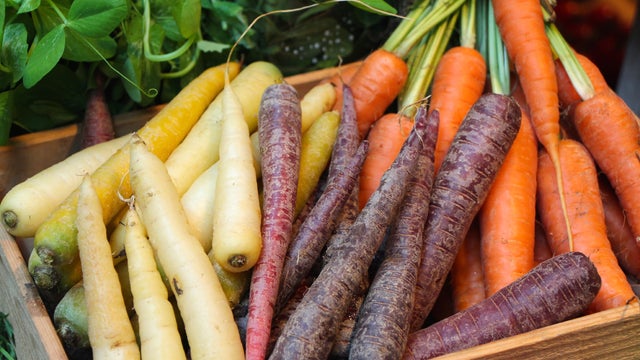"Australian farmers have always faced a highly variable climate, but now climate change adds significant additional complexity to their management," said Richard Eckard, the director of the Primary Industries Climate Challenges Centre based at the University of Melbourne, who contributed to the report.
In addition to reducing production of crops and livestock by 2030, he wrote, "heat and drought are likely to reduce the quality of grain, grape, vegetable, fruit, and other crops."
The report found a long list of supermarket staples would be effected if temperatures rise up to 1.6° Celsius (2.9° Fahrenheit) by 2030 (compared with the 1980-1999 average temperature) and up to 5°C (9° F) by 2070.
Carrots might lose some of their texture and taste, kale could become more bitter, eggplants could grow deformed and canola oil could lose about a quarter of its nutritional value. Many other crops could suffer lower yields, increased disease or reduced flowering, including raspberries, lemons, beets, potatoes, lentils and chickpeas.
Previous studies have found that in a warmer world, food prices are expected to rise and some of what we eat will have less nutritional value.
Not everything on the farm, however, will suffer in a warmer world.
The report found that sweet potatoes could become a greater part of the global diet, the range of olives should expand and such things as mangoes and eggplant will be able to grow in areas where it is now to cold to produce them.
The report quotes some farmers who say they're worried about the warming trend. "Should we address global warming? We have no bloody future if we don't," winemakerDavid Bruer said. "I worry very much about my children. I just wonder what their future is."

No comments:
Disclaimer: Opinions expressed in comments are those of the comment writers alone and does not reflect or represent the views of Voxpopuli
Post a Comment